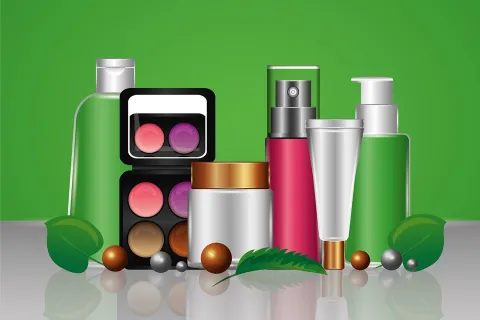
Expanding your cosmetics business into the EU and UK markets presents immense opportunities, but it also requires strict adherence to regulatory requirements. One of the most critical steps for compliance is establishing legal representation, which ensures your products meet safety standards and regulatory obligations. This blog will guide you through the importance of legal representation and the essential regulations you need to follow to successfully enter and thrive in the EU and UK cosmetics markets.
Understanding the Regulatory Framework: Key Regulations and Authorities
For the EU Market:
The cosmetics industry in the EU is regulated under Regulation (EC) No. 1223/2009 on Cosmetic Products, which sets out strict guidelines for product safety, labelling, and market authorization. This regulation requires all cosmetics marketed within the EU to be compliant with its safety and labeling requirements.
Responsible Authority: The regulation is enforced by various national competent authorities in each EU member state, with overall coordination by the European Commission (EC).
For the UK Market:
Following Brexit, the UK now has its own regulatory framework, known as the UK Cosmetics Regulation (Schedule 34 of the Product Safety and Metrology Statutory Instrument 2019 No. 696). While it closely mirrors the EU regulation, there are key differences that require separate compliance processes for cosmetics sold in the UK.
Responsible Authority: The Office for Product Safety and Standards (OPSS) is the main regulatory body in Great Britain (England, Scotland, and Wales), while the Department of Agriculture, Environment and Rural Affairs (DAERA) oversees Northern Ireland in conjunction with EU regulations.
The Role of Legal Representation in the EU and UK Markets
Legal representation is a mandatory requirement for non-EU and non-UK manufacturers intending to sell cosmetic products in these markets. This involves appointing a "Responsible Person" (RP) who acts as the primary point of contact with regulatory authorities and ensures safety and compliance with all applicable regulations.
Why Appoint a Responsible Person (RP)?
The RP plays a critical role in ensuring that cosmetic products meet all safety, labeling, and regulatory standards. The primary responsibilities of the RP include, among others:
Product Safety Assessment: Conducting safety assessments and ensuring that the product does not pose any risk to human health under normal or reasonably foreseeable conditions of use.
Product Information File (PIF) Maintenance: Maintaining the PIF, which contains essential details about the product’s formulation, manufacturing process, safety assessment, animal testing and effects claimed for the cosmetic product. This file must be readily available to the authorities for inspection.
Notification to Authorities
For the EU: Before placing a product on the market, the RP must notify it through the Cosmetic Products Notification Portal (CPNP).
For the UK: The RP must notify products through the UK Submit Cosmetic Product Notification (SCPN) portal for products sold in Great Britain.
Labelling and Claims Compliance: Ensuring that all product labelling is in accordance with regulations, including mandatory information such as ingredient lists, usage instructions, batch numbers, or the Period After Opening (PAO) symbol. Any claims made about the product (e.g., "anti-aging," "hypoallergenic") must be substantiated.
Adverse Reaction Monitoring: Monitoring and reporting any serious undesirable effects (SUE) to the relevant health authority and taking corrective actions if necessary.
Recall and Withdrawal: Initiating product recalls or withdrawals if a safety risk is identified, ensuring consumer safety and regulatory compliance.
Key Steps to Establishing Legal Representation in the EU and UK
Identify an Experienced RP: Choose a Responsible Person with a strong understanding of the cosmetics regulations in both the EU and UK. This can be an individual, a company, or even a third-party organization specializing in regulatory compliance.
Understand Market Differences:
For the EU, one RP is sufficient for all member states.
For the UK, you need an RP based in Great Britain (England, Scotland, or Wales) for products sold in these regions. Note that Northern Ireland follows the EU regulations due to the Northern Ireland Protocol.
Prepare a Comprehensive Product Information File (PIF): Ensure the PIF includes the cosmetic product safety report, manufacturing process, statement on compliance with GMP, data on animal testing and proof of efficacy for any claims.
Stay Updated with Regulatory Changes: Regulations in both the EU and UK markets are subject to changes. Your RP should be proactive in keeping up to date with regulatory updates and implementing necessary adjustments to maintain compliance.
Best Practices for Appointing a Responsible Person
Choose an RP with In-Depth Regulatory Knowledge: Select an RP familiar with the cosmetic regulations, guidelines, and industry practices in both the EU and UK.
Ensure Clear Communication: Maintain open and clear communication channels with your RP to stay informed about regulatory updates and compliance requirements.
Monitor Adverse Effects: Work closely with your RP to track and respond to any adverse effects reported by consumers, ensuring prompt action and regulatory compliance.
Conclusion
Establishing legal representation is not just a regulatory requirement but a strategic step that facilitates smooth market entry and ongoing compliance in the EU and UK cosmetics markets. Appointing an experienced Responsible Person ensures that your products meet all safety, labelling, and notification requirements, safeguarding your brand's reputation and ensuring a successful market presence. Partnering with a regulatory expert like Freyr can ease your process and achieve compliance in the EU and UK markets.









